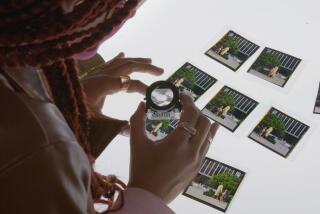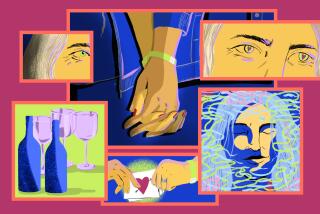‘Blindspotting’ brings the Bay Area to the world. Locals may be its toughest critics
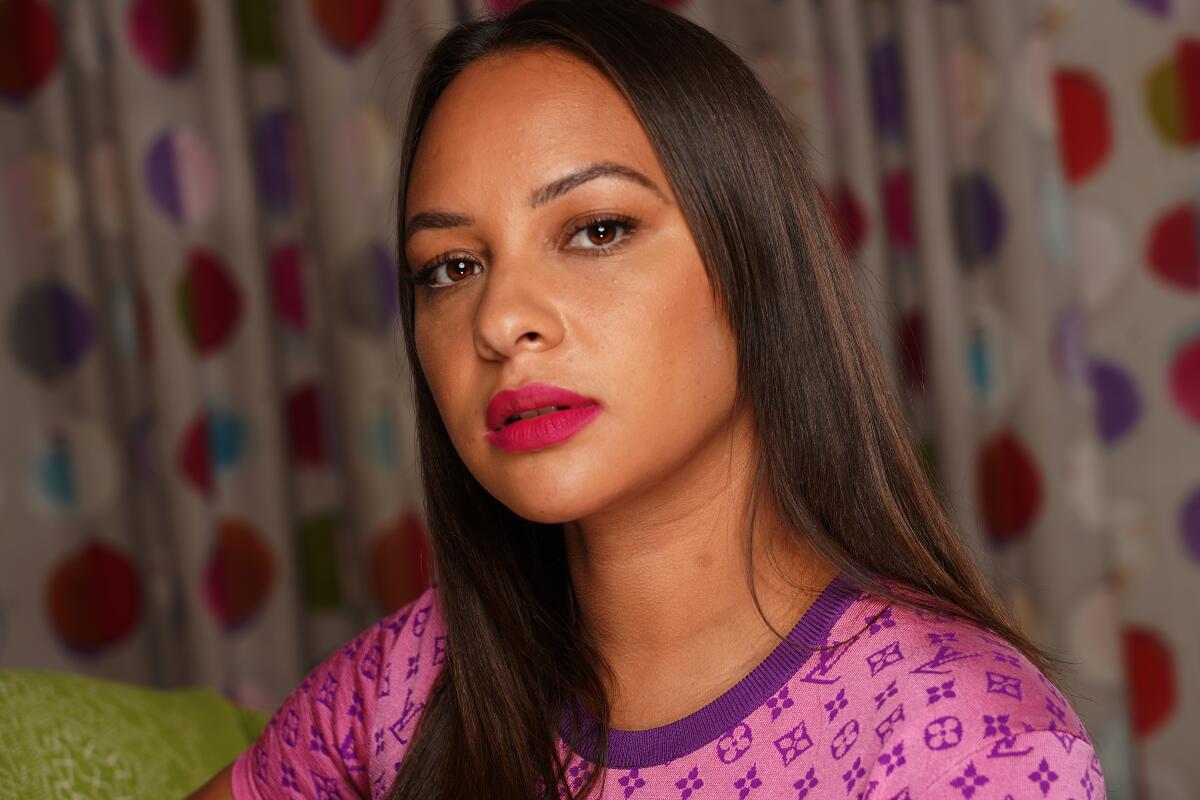
It’s golden hour and cars are swinging rapturous donuts in a West Oakland intersection as the first episode of Starz’s “Blindspotting” spinoff series, adapted from Daveed Diggs’ and Rafael Casal’s 2018 indie dramedy of the same name, follows its new protagonist into uncertain terrain: not the conflicted Collin (Diggs) or his hotheaded best friend Miles (Casal), but Ashley (Jasmine Cephas Jones), Miles’ longtime girlfriend, who must forge ahead and figure things out on her own.
Picking up after the events of the film, with Miles newly locked up, the series finds Ashley and her young son reluctantly moving in with his mother and half-sister, curtailing Ashley’s dreams of upward mobility and magnifying the dislocation she feels: Facing the unknown without her partner for the first time since their youth has Ashley feeling like a stranger in her own hometown.
Then someone starts bumping Mac Dre, launching the neighborhood into an impromptu dance-along, and when the opening line drops, even Ashley is swept up in an energy she didn’t realize she missed:
Hello everybody, I’d like to introduce you to the Thizzle Dance...
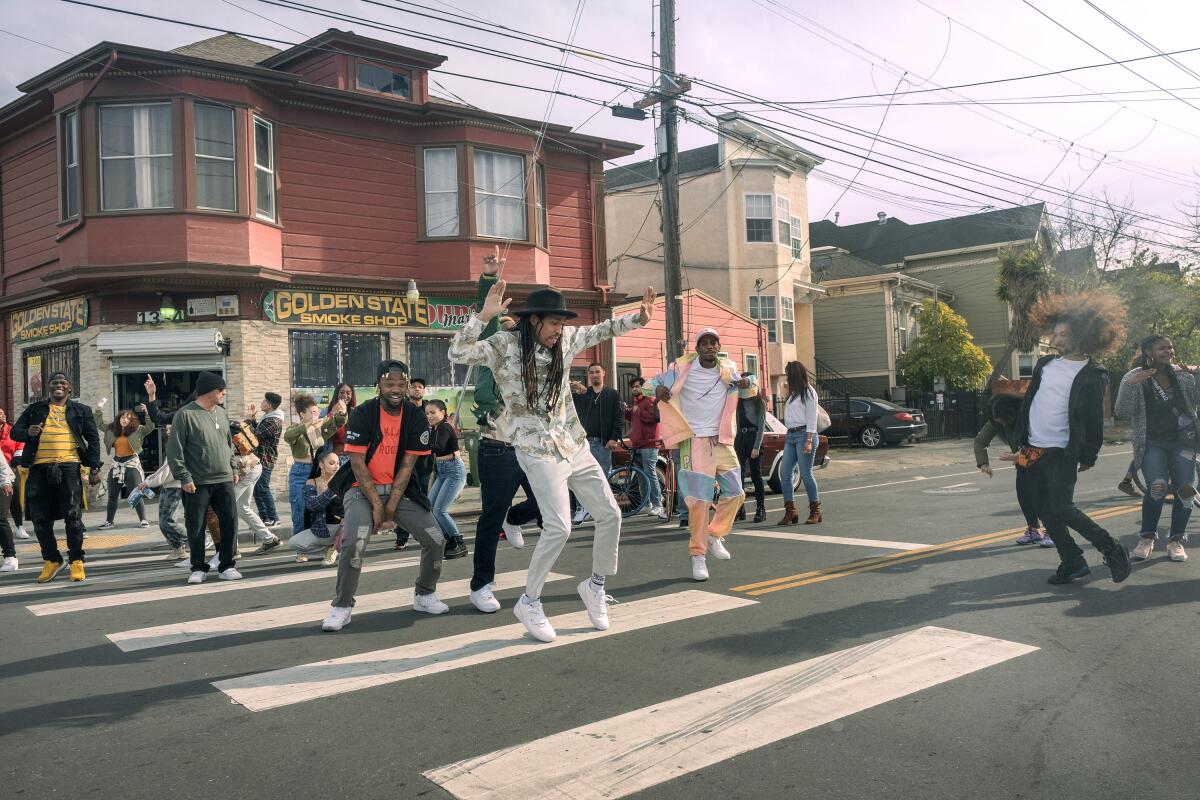
The unifying power of Mac Dre, of course, has been a constant of Bay Area culture for decades. But the rebellious playfulness of the viral-video-inspired moment, and the song, written into the pilot script by executive producer-writers Diggs and Casal, isn’t just hyperlocal. Inviting the audience to see through Ashley’s eyes a perspective that takes command in the eight-episode season, “Blindspotting” approaches something more poetic and profound.
Ashley may not know it yet, but she’s still processing the traumatic experience of having her family ripped apart by the carceral state, not to mention the macro- and microaggressions she endures catering to rich white folks at her day job at a hotel named for San Francisco’s famed tourist-friendly former prison.
But East Bay-born collaborators Diggs and Casal, with their shared backgrounds in music, theater and spoken word, see the Bay Area as a place where lyricism and metaphor are baked into the textures of their everyday world. “Blindspotting,” which premiered Sunday, comes with a touch of magical realism, in the form of a Greek chorus of dancers, led by choreographers Lil Buck and Jon Boogz, who appear throughout the series.
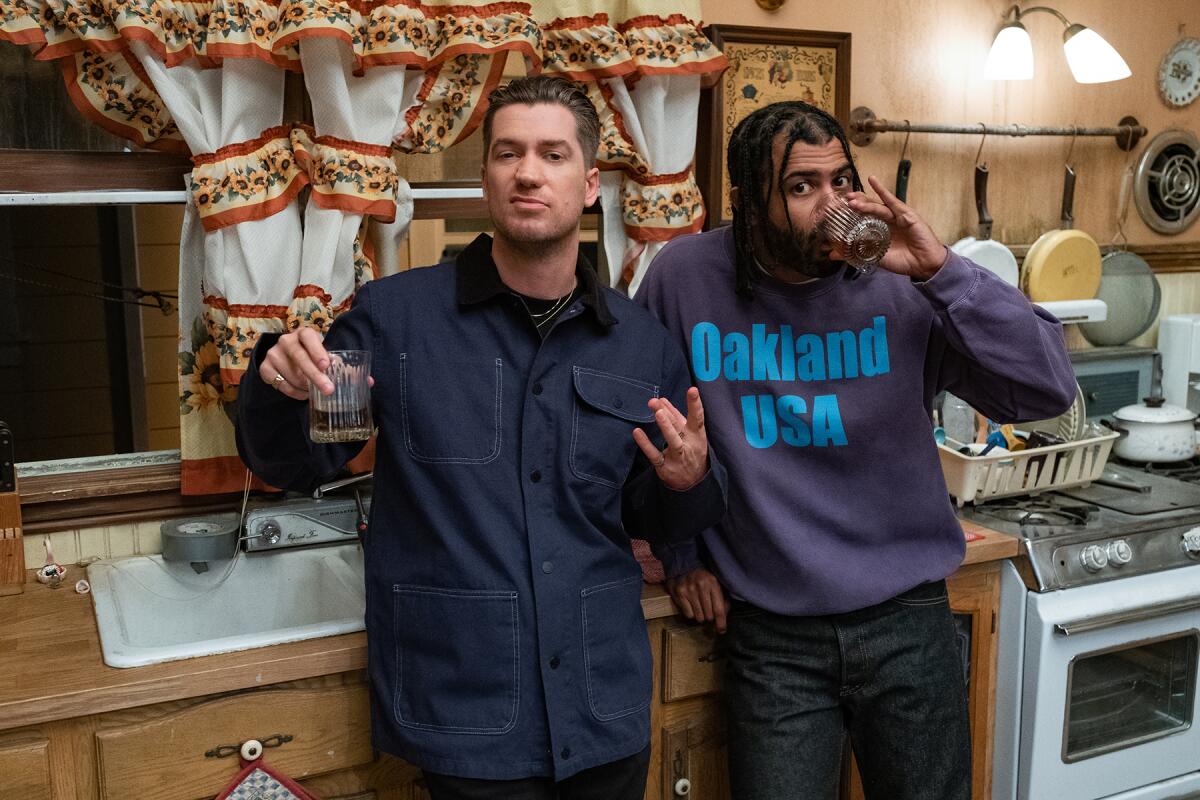
“It worked so well, but it worked so well because we incarcerate more people than anywhere in the world,” Diggs said of the dancers, first introduced in prison blues. “Art is useful in a way if you can make it entertaining and also have it point at a thing; it allows us to see the thing. And oftentimes awareness is as far as we can get with a piece of art, but it’s not a small thing. Enough awareness can sometimes beget action.”
In this, “Blindspotting” leans into the heightened flourishes of the film, directed by Carlos López Estrada and starring Diggs and Casal. Here, fourth-wall breaking verse gives voice to emotions Ashley can’t bring herself to speak, whether she’s waiting in vain for a visitation, unleashing her frustrations at work or agonizing over how to explain to her son, Sean (Atticus Woodward), where his father is.
“Even though she’s going through this thing and it’s very hard for her, I still wanted people to see her joy and her anger, everything,” said Cephas Jones, speaking by phone from New York. “It’s important to show many sides of what a woman can be because in the industry, it’s easy to make a woman just one note, and I didn’t want that for her.”
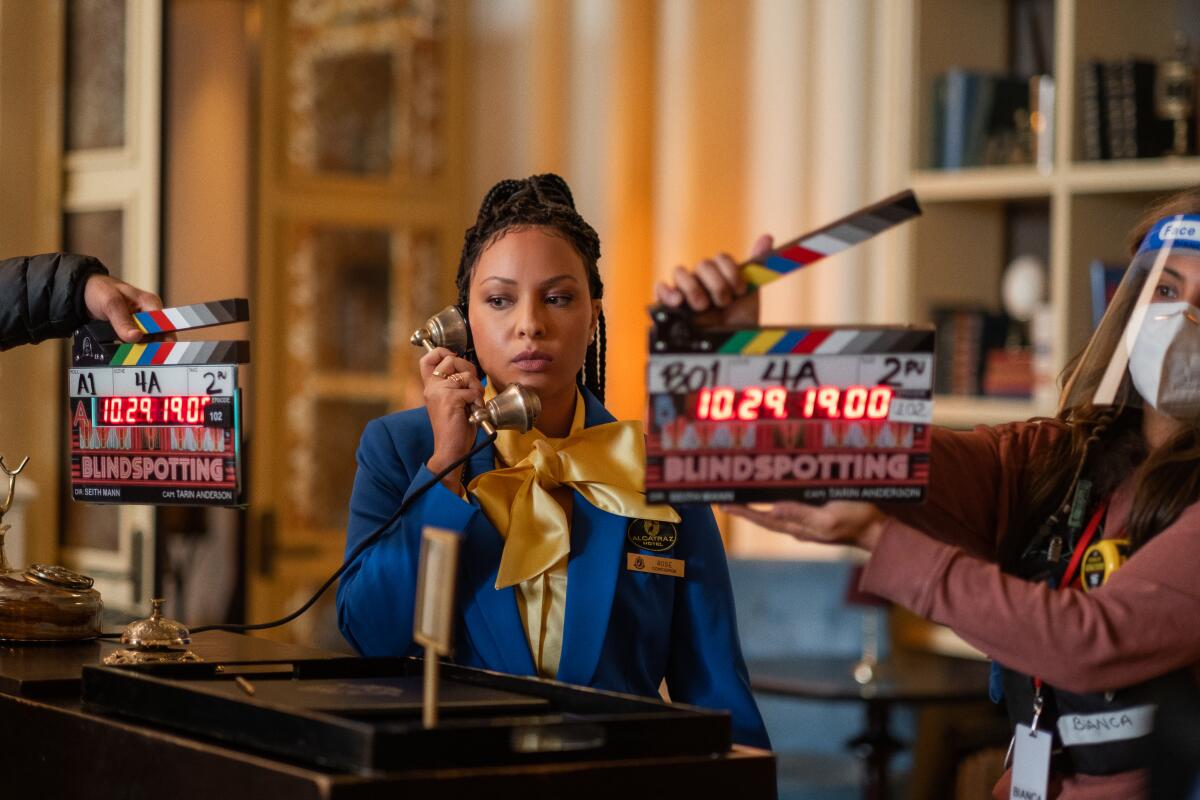
Expanding a brief but potent supporting turn in the film into a commanding starring role, Cephas Jones, who first starred with Diggs in “Hamilton,” steps into a producing role for the first time as “Blindspotting” shifts its focus to the women, families and community dealing with the ripple effects of mass incarceration.
“I’ve visited loved ones in jail before. Just to get through to say you love your relative or to tell them you’re thinking about them or to show them some love is so hard to do,” said Cephas Jones. “What was really important to me, Diggs and Rafael was to show this love between Miles and Ashley and show how strong that is, and how they’ll do anything to keep their family together. They know that this system is trying to break them, and it’s really their goal to try to beat that and make it work.”
Hollywood is writing love letters to San Francisco again.
Transferring the seriocomic but socially conscious tone and hometown pride of the film into a half-hour format, the series finds a new alchemy of its own thanks to Diggs’ and Casal’s atypical-in-Hollywood choice to shift away from their own characters.
Greenlighted during the pandemic and developed by a writers room in Vancouver, where Diggs was filming his TNT sci-fi series “Snowpiercer,” “Blindspotting” was written by Diggs, Casal and screenwriters Priscila García-Jacquier, Alanna Brown, “Jinn” filmmaker Nijla Mu’min and Benjamin Earl Turner, who makes his acting debut on the show. Diggs and Casal also recruited Bay Area friends to share their lived experiences with the predominantly female writing staff and cast, a process Casal, who also serves as showrunner and directed the season finale, described as humbling.
“They were asking questions that I just wouldn’t necessarily think to ask,” he said. “We’re going to be presented with moments where we need to step back, and Daveed and I were always scanning to make sure we were catching as many of those moments as possible — like, ‘Oh, this conversation isn’t for us.’”
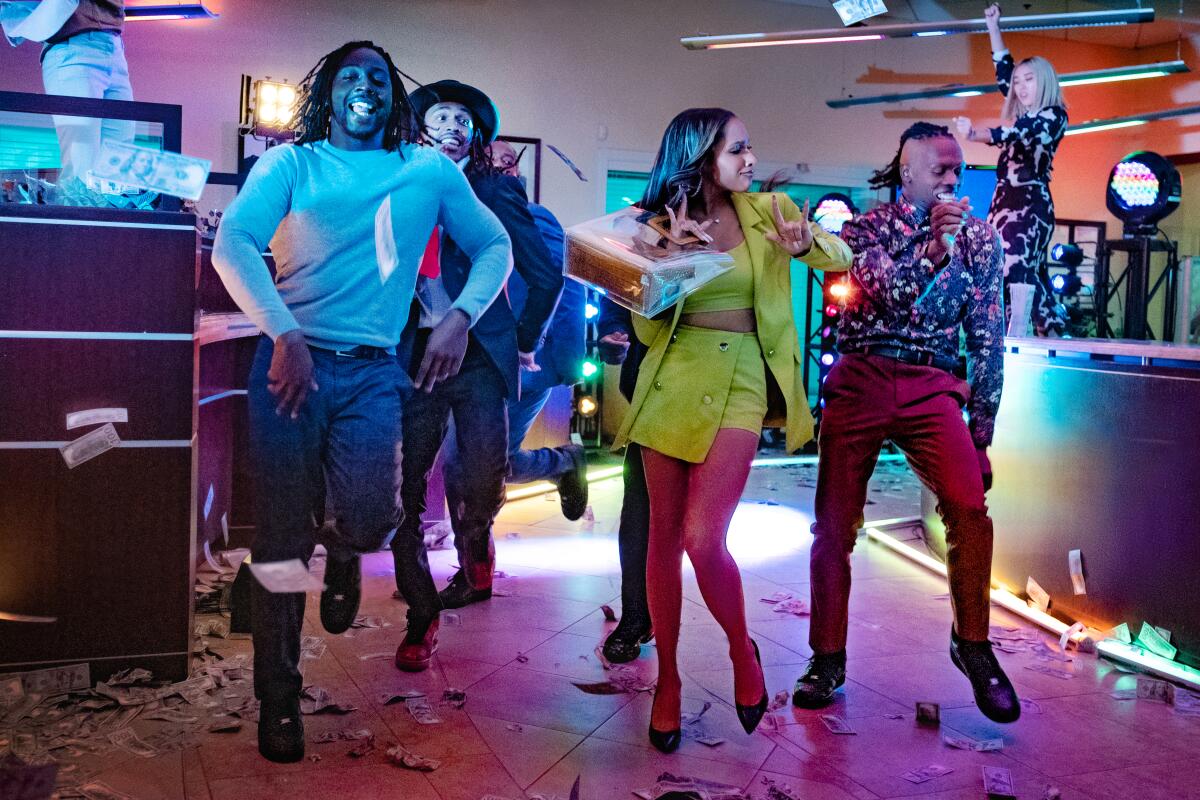
The extended artistic family built around “Blindspotting” included longtime friends like Turner, returning actor Margo Hall, crew that had worked on the film and Oscar winner Helen Hunt, a fan of the feature who’d become hiking buddies and socially distanced movie night friends with the filmmakers.
“She tweeted Rafa out of the blue while Rafa was watching ‘Twister’ and he called me like, ‘Bruh, this is what just happened!’” said Diggs.
Eventually they asked her to play Miles and Trish’s weed-smoking, ex-Berkeley hippie-type mom. “Rainey is not dissimilar to both Rafa and my mothers,” he said with a laugh. “There’s a lot of our moms in there, most importantly the either inability or unwillingness to not state her opinion even when she knows it’s not going to go over well. Rainey has that in her, which I love, and so much of Rainey came from Helen too.”
The term “blindspotting” describes a perceptual dilemma best illustrated by Rubin’s vase, that famous black-and-white image that tricks the eye into seeing either a piece of pottery or two faces in profile, but never both at the same time.
Plans to shoot extensively in the Bay Area were cut short by local ordinances. Instead, following COVID-19 protocols, the series shot interiors on L.A. stages before heading north in its final weeks to film exteriors on location, hoping to capture Oakland‘s unmistakable essence.
Which is how Brooklyn-raised Cephas Jones found herself in Oakland last year dancing to Mac Dre, for a scene so infectious the crew joined in bouncing along to the late rapper’s iconic Bay Area anthem. “We did so many takes I was like, ‘I’m really gonna dream about the Thizzle Dance and it’s never gonna leave me,’” she joked.
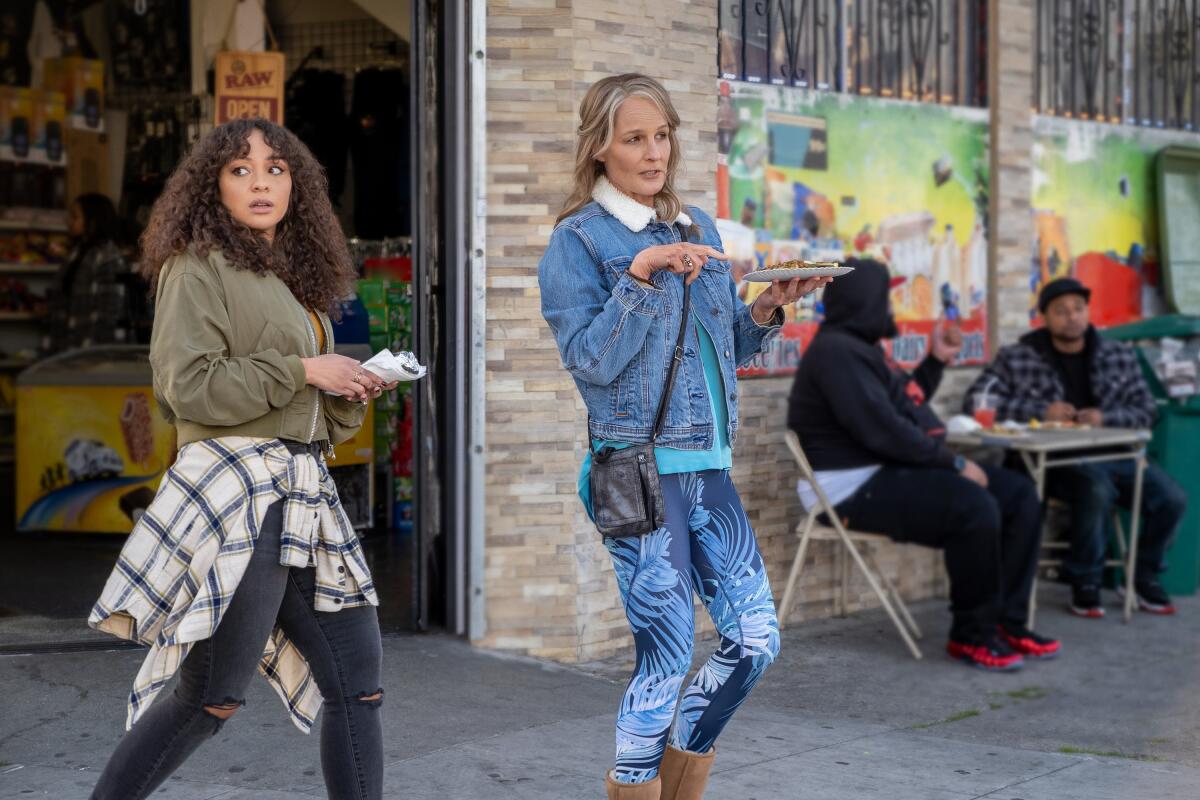
That moment, helmed by Seith Mann — who directed Cephas Jones to an Emmy in last year’s short-form series “#FreeRayshawn” — illustrates the musicality that guides the series: Cinematographer Tarin Anderson transforms the crowd’s movements into a symphony of graceful, slow-motion elation, while a score by composers Michael Yezerski and Ambrose Akinmusire, punctuated by virtuosic trumpet work, carries the scene toward the sublime.
Casal and Diggs wanted to give the moment a balletic quality, and renowned jazz musician Akinmusire, whom they’ve known since high school, “knew the assignment right away.” “He created this riff, this connective tissue between Mac Dre’s the ‘Thizzle Dance’ and this accompaniment that makes you look at the whole thing in a different light,” said Casal. “And the show is doing that as much as possible.”
The movie, which tackled topics of race, police violence and gentrification through the eyes of Diggs’ ex-con Collin as he sweats out his final few days of probation and witnesses a police shooting, was among the recent Oakland-set films, along with Boots Riley‘s “Sorry to Bother You,” that helped relocate the San Francisco East Bay on a cinematic map that had long overlooked it.
Having spent nearly a decade writing the film, which launched their respective acting careers, Diggs and Casal considered Collin and Miles’ stories told. But the series offered a chance to explore more characters, put on more new talent, rep more Bay culture and foster new conversations — particularly about how the prison industrial complex reaches into communities and affects everyone it touches.
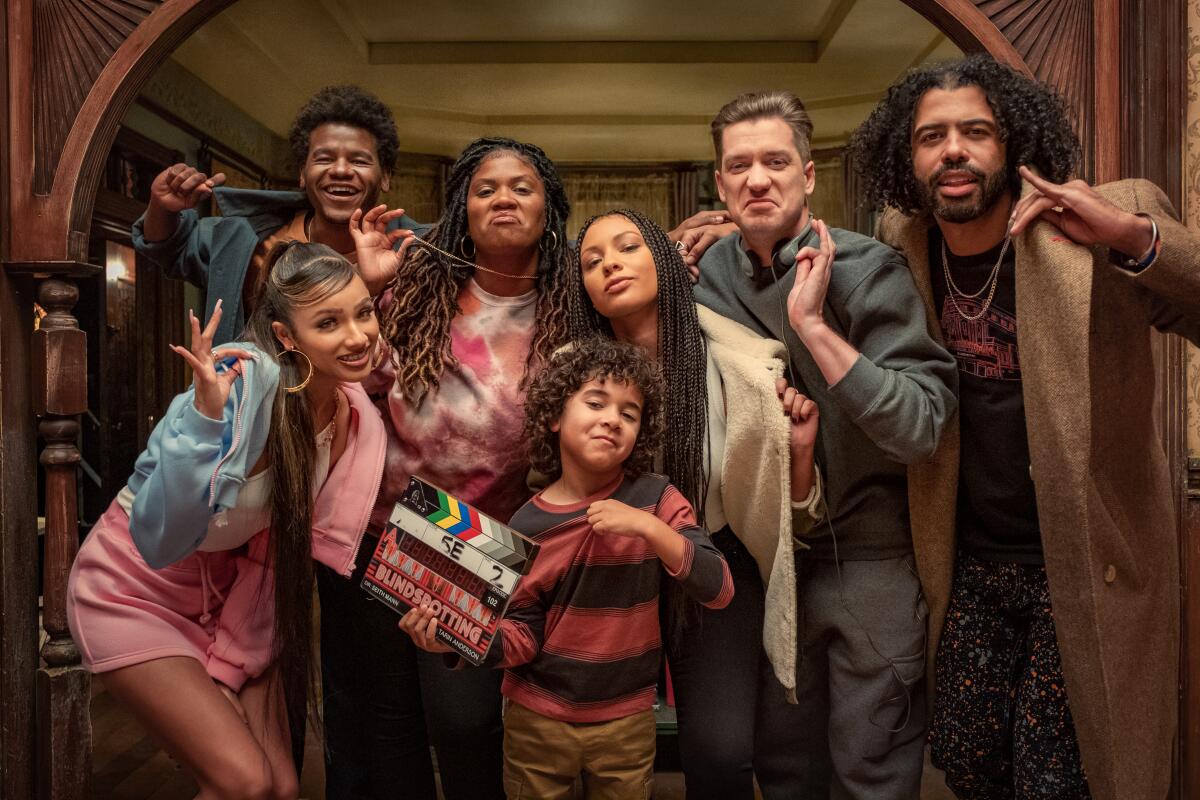
Turning “Blindspotting” into a series wasn’t a notion the filmmakers had considered until Lionsgate, which acquired the film out of the Sundance Film Festival, pitched the idea. Diggs, Casal and the film’s producers, Keith Calder and Jess Wu Calder (“You’re Next,” “One Night In Miami ...”), decided to build it around Ashley, and Starz came aboard after the project was championed by Kathryn Tyus-Adair, the network’s senior vice president of original programming.
“That was the only room where there were women of color in decision-making positions,” noted Wu Calder, whose discovery of Casal’s online poetry videos years ago led to the development of the “Blindspotting” film.
With Cephas Jones at the center of the ensemble — which also includes Hunt as Rainey, who’s harboring her own maternal secrets; scene-stealing Jaylen Barron as Miles’ live-wire sister, Trish, a born hustler trying to start a progressive co-op for sex workers; effervescent Candace Nicholas-Lippman as Ashley’s old friend Janelle, who is struggling to reconnect with the Bay after spending years in Bali; and newcomer Turner in the tailor-made role of Earl, the amiable parolee next door — “Blindspotting” takes on new dimensions, even as Collin’s absence is explained away and Miles appears only in a supporting role, either behind bars or in Ashley’s imagination.
From the buzzed-about to the under-the-radar, the Times TV team selects the shows to queue up for your nights at home this summer.
“We’re dealing with the impact of interlocking large institutions on individuals and groups of people,” said Calder, who serves as series executive producer alongside Wu Calder for Snoot Entertainment. “And to try to simplify everything into a single theme or talking point is not only complicated to do, but also feels naïve to the reality that we’re facing, which is that these are all intersecting institutions that are creating problems.”
As the season unfolds, getting deeper into the characters’ backstories, interpersonal dynamics, and debates on topics like Black identity, colorism and privilege (as well as the value of movies like “The Meteor Man” and “Paddington 2,” laid out convincingly by Turner’s scruffily endearing Earl), Casal recognizes that hometown critics might be the most discerning.
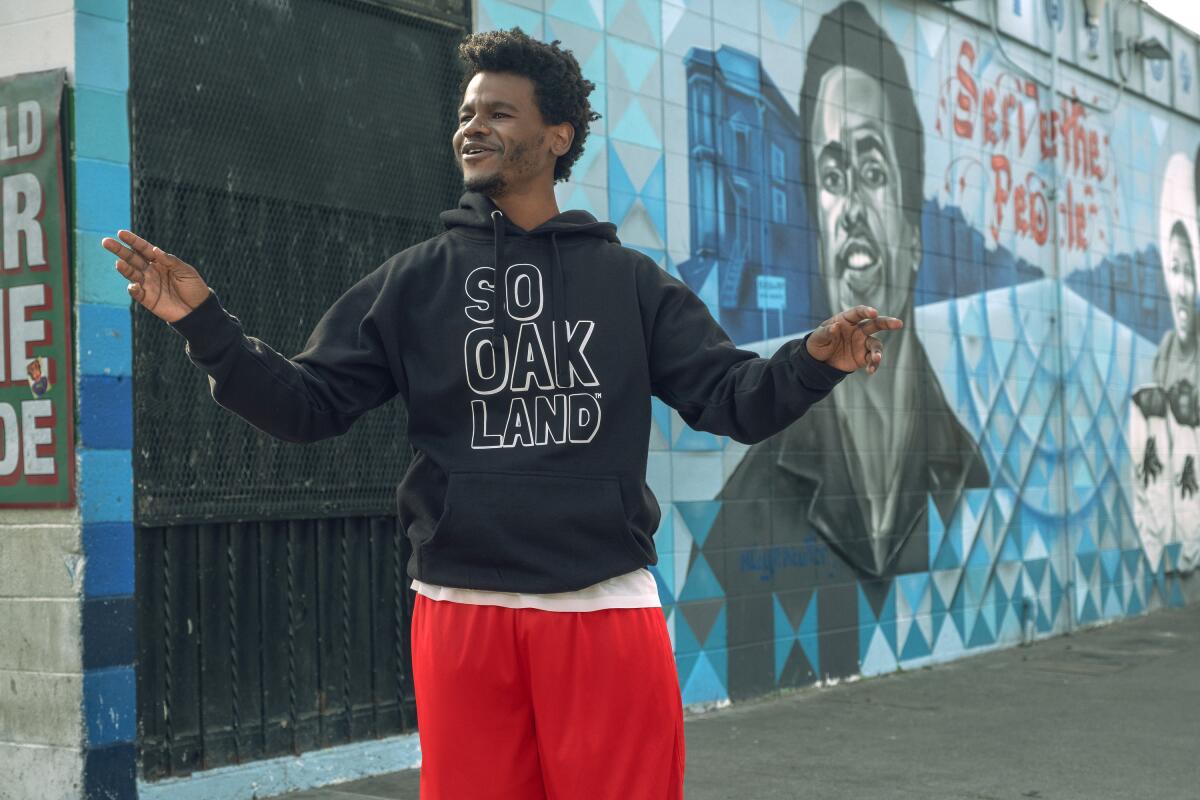
“The Bay Area’s going to have a lot of opinions about this show and it’s going to be a lot of arguing about the validity of this show, but what we always keep in mind is we’re bringing the Bay to Germany, and Brazil and Australia — we’re thinking about the global impact of how to transfer this and explain it to people who aren’t from here,” said Casal.
Should they get a second season, Casal and Diggs hope to bring more characters and communities into the “Blindspotting” world, bring production to the East Bay and build infrastructure in the area that might help others tell their own Bay Area stories. Both are looking to springboard into the next stage of their careers behind the camera, Diggs as producer helping artist friends get projects off the ground and Casal with an eye to direct his first feature.
After hustling as artists for most of their lives without others pointing a clear path forward, said Casal, “it’s cruel to slam the door behind you.”
“Maybe that’s our Bay Area upbringing, but I do think it’s our responsibility to try to have an impact on the systems and institutions that we have to work with in order to make the show,” Casal concluded. “We may not be able to do that overnight. We may not be able to fundamentally shift one of those things. But we can at least chip away at it.” He grinned. “And we’ll go make some sellout projects later.”
‘Blindspotting’
Where: Starz
When: 9 p.m. Sunday
Rating: TV-MA (may be unsuitable for children under the age of 17)
More to Read
The complete guide to home viewing
Get Screen Gab for everything about the TV shows and streaming movies everyone’s talking about.
You may occasionally receive promotional content from the Los Angeles Times.


